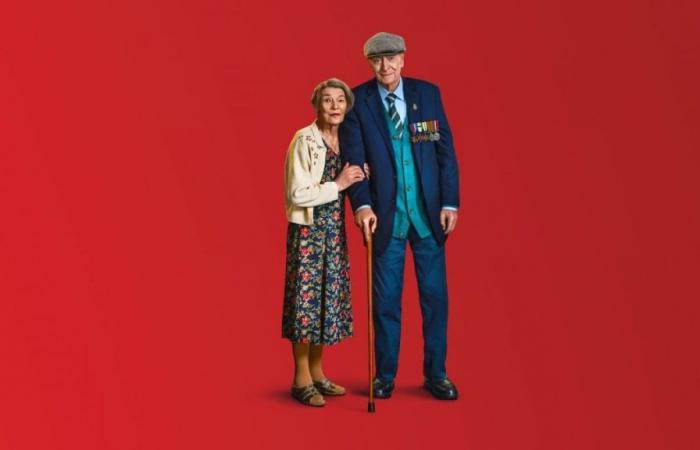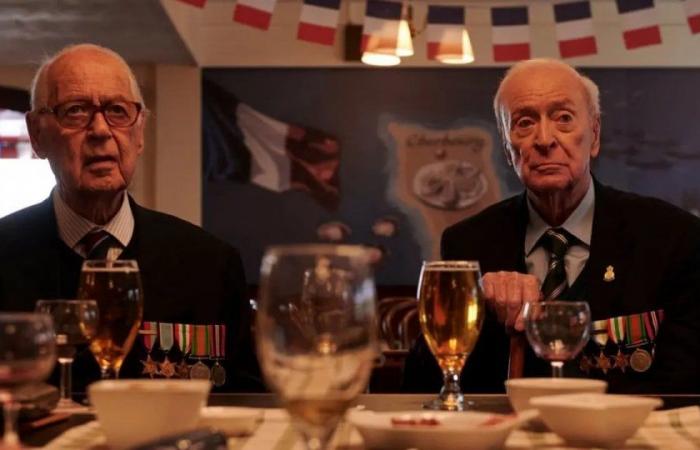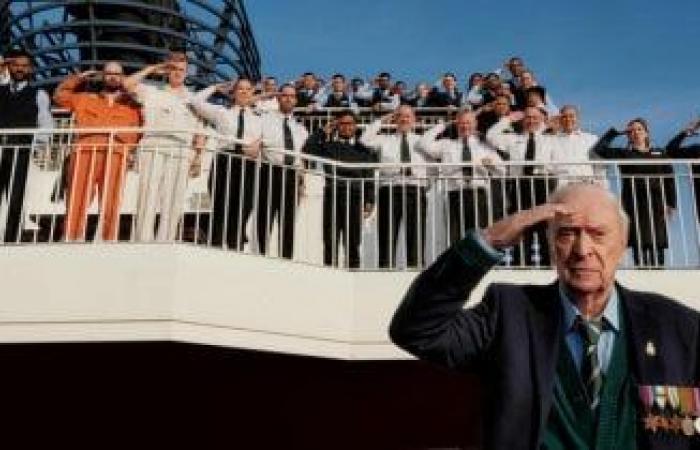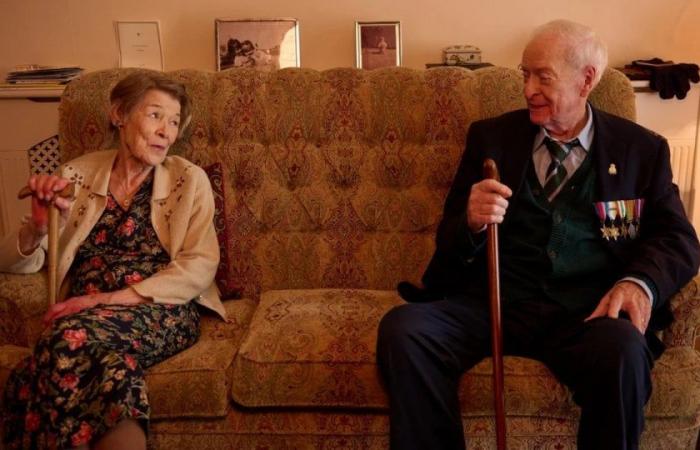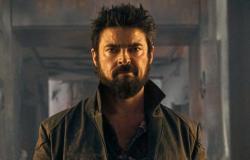What an honor he had Oliver Parker to be able to direct two sacred monsters of acting in their last time, among other things desired, announced and chosen, on the big screen. The director of Escape to Normandy he has in fact worked with the Oscar Awards Michael Cainewho retired after the film at the age of 91, and Glenda Jackson, who returned after a more than 30-year retirement and passed away shortly after filming wrapped. By the way, it is the second time in their career that they are a film couple, after A romantic English woman from 1975.
The opportunity was one that doesn’t happen often (especially in British cinema), namely to be able to adapt a true story in a film with two “old” actors as the absolute protagonists, who for the umpteenth time have proven to the general public that they are giants despite senility, members of a golden generation which it is not certain will be replicated by the interpreters today in the prime of their age.
Their last lap on set is a reflective film at the limits of the contemplativewhich with calm, kindness and class, unmasks the media reconstruction of a story that made noise in the world of tabloid English as well as the rhetoric about infinite love and the glory of victory in the Second World War that hovers today. Above all, however, a film that lives on interpretations of its two protagonists, their looks, their movements, their expressions and their extraordinary presence.
The story behind the true story

“Escape to Normandy” adapts that real event which in British news is known as the story of The Great Escaper (original title of the film), or about a Royal Navy veteran who on the occasion of the seventieth anniversary of D-Day (the day of the Normandy landings) decides to escape from the retirement home where he stays with his wife to travel to France alone. A singular story which, obviously, is passed off by the media as that of a soldier who still has that sacred fire within him that does not allow him to escape the call to arms.
The soldier’s name is Bernard “Bernie” Jordan (Caine), he is 89 years old and has been with his wife Irene “Rene” Jordan (Jackson) for more than 60. Despite his age he is still quite independent, in fact their stay in the center is rather due to the state of health of the woman precarious, which is why the man had declined the offer to participate in the group initiative organized by the retirement home for the commemoration. Rene is the one who changes Bernie’s mind (and covers him in his escape). encourages him to take the last boat available to reach France.
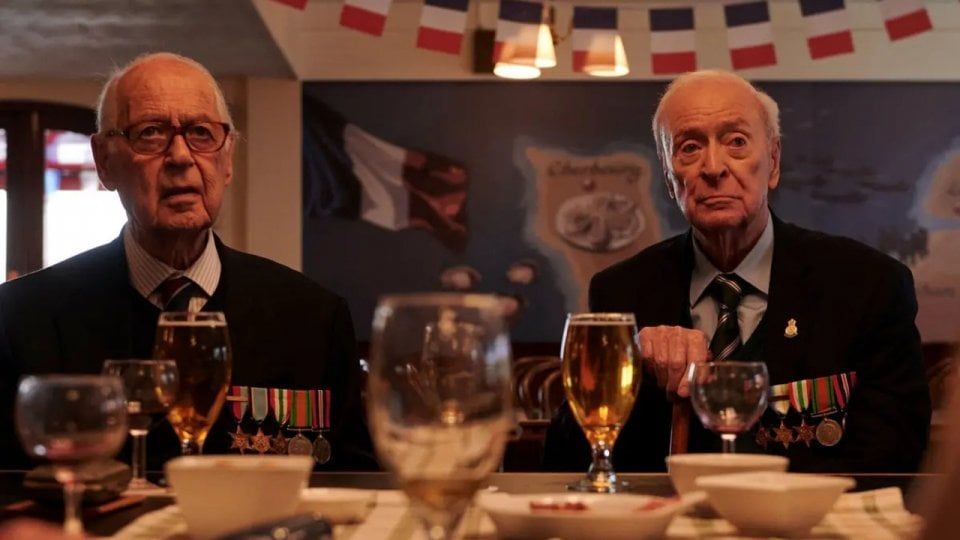
The man embarks, and during the journey he knows another veteran, but of aviation, a certain Arthur Howard-Johnson (played by Sir John Standing), with whom he will discover that he shares not only the pain and nightmares of what was, but also the purpose that took his steps towards that damn beach: make peace with yourself. The trip to Normandy in fact becomes a journey into the past both for the two soldiers and for Rene, who remained in her room at the center of her, still waiting for a return. The last one.
Orchestra conductors
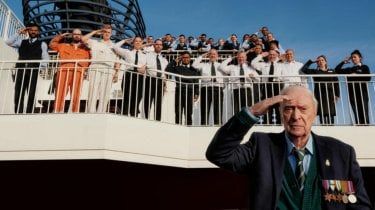
A film starring two names who are getting older almost automatically becomes a film aboutimportance of memory; what it makes Escape to Normandy different from the “canon” are the performances of his actors and, in part, the way he approaches this task. Oliver Parker’s film in fact recreates a extraordinarily functional parallelism with the condition in which the soldier leaves for war, while his wife waits for him at home, only this time the war to be resolved is the one within them. He faces it together with those who shared his pain and trauma, while she faces it alone (which is perhaps even worse), telling herself that she should never have let go of his love for her.
In creating this new long-distance relationship the director takes as much as possible from Apple tree and focuses heavily on an unveiling operation. Another of the film’s merits is in fact fight the rhetoric of the veteran in one piece, of the happy ending of a long and troubled love story and of the honor that comes from the victory of a war, which is always a drama (there is a sentence that explicitly says this). In fact, the film wants to break down easy mystifications, trying to give back dignity to the past and who lived it.
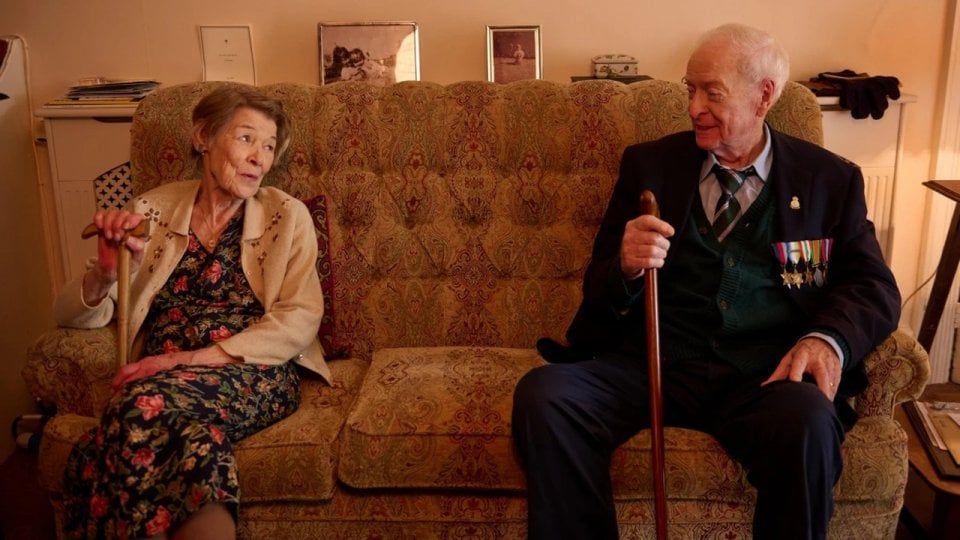
Objective that Escape to Normandy reaches through the fantastic tests by Michael Caine and Glenda Jackson, who have the merit of making everything credible and exciting in the time of a stroll around the pier and of strengthening their bond with a simple gesture or a single close-up. They are the beating heart of an orderly and methodical film, conductors of an orchestra who seeks class and respect through the photography with which he illuminates the sea, the drama of flashbacks, the notes of the piano and the composed suffering of those who must remember for make peace with what awaits him.
Conclusions
In the review of Escape to Normandy we told you about the new film by Oliver Parker, based on a true story, starring the two Oscar winners Michael Caine and Glenda Jackson, both in their last appearance on the big screen. A film that draws from the melodrama, relying on the fantastic performances of its two tenors, to create an orderly, contemplative, elegant and composed structure with which to restore dignity to those who have experienced a traumatic past and which still prevents them from reaching peace for a peaceful meeting to what awaits him.
Because we like it
- The trials of the two protagonists.
- Photography, music and editing with a tuned tone.
- The anti-rhetorical ambition.
What’s wrong
- Film of ordinary construction.
- The ambitions are predictable.

